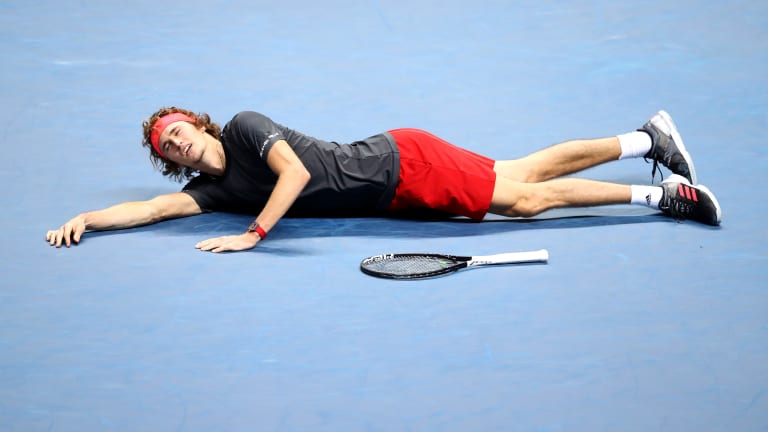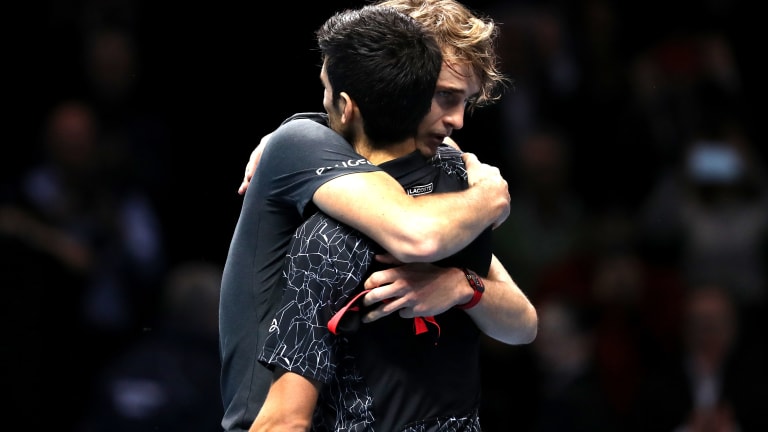HIGHLIGHTS: Alexander Zverev d. Novak Djokovic, 6-4, 6-3
With the way Zverev beat Djokovic in London, the future is his
By Nov 18, 2018Wimbledon
The Tennis Conversation: Tim Henman
By May 21, 2021Wimbledon
Debating best-of-three sets vs. best-of-five
By May 21, 2021The Pick: Lorenzo Musetti vs. Sebastian Korda, ATP Lyon second round
By May 18, 2021In Geneva, Roger Federer loses clay-court comeback to Pablo Andujar
By May 18, 2021The Pick: Jannik Sinner vs. Aslan Karatsev, ATP Lyon first round
By May 17, 2021Officials deny that 2022 Australian Open could move
By May 17, 2021Week in Preview: Serena, Federer lead stars tuning up for French Open
By May 17, 2021Nadal finds the final answer for Djokovic in roller coaster Rome final
By May 16, 2021Rafael Nadal battles past Novak Djokovic to win Rome for 10th time
By May 16, 2021With the way Zverev beat Djokovic in London, the future is his
Published Nov 18, 2018
Advertising
With the way Zverev beat Djokovic in London, the future is his
Advertising

With the way Zverev beat Djokovic in London, the future is his
© 2018 Getty Images
Advertising

With the way Zverev beat Djokovic in London, the future is his
© 2018 Getty Images